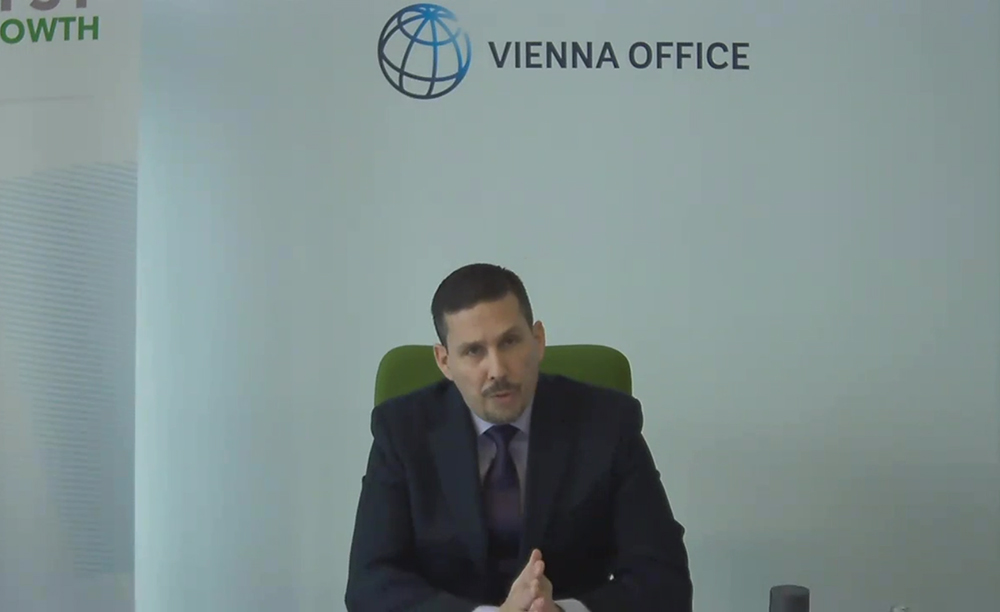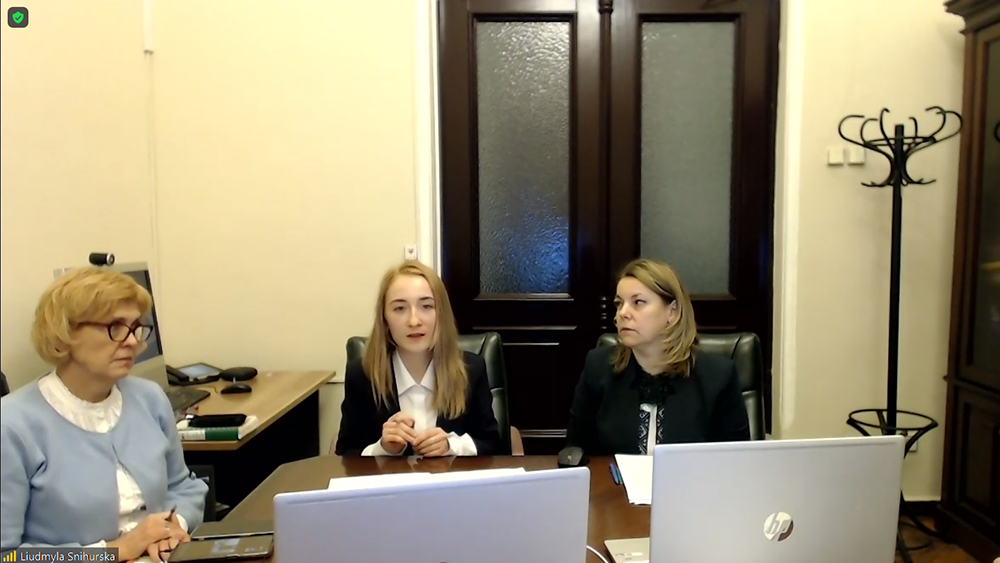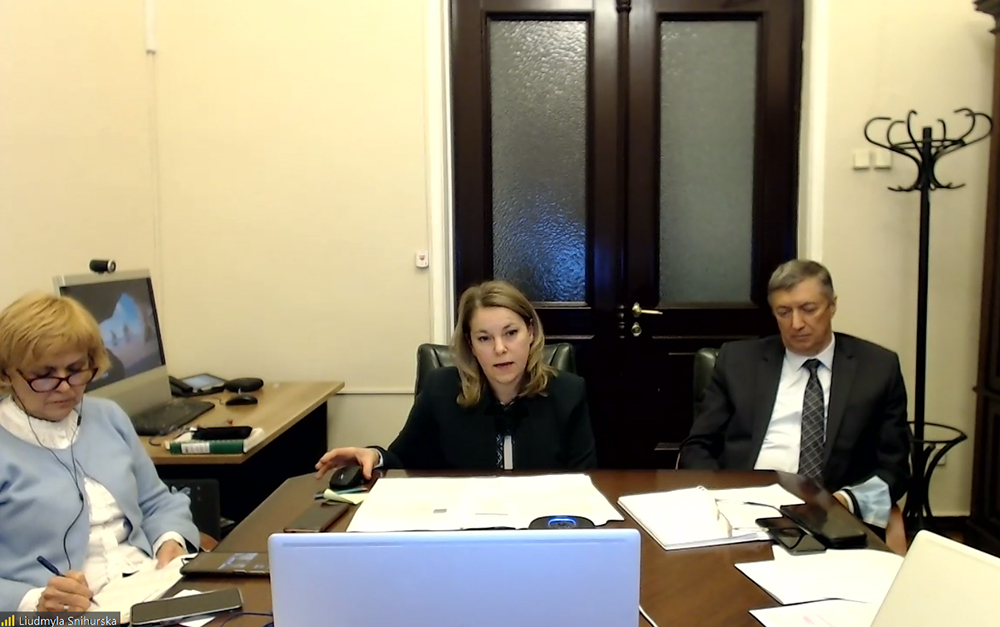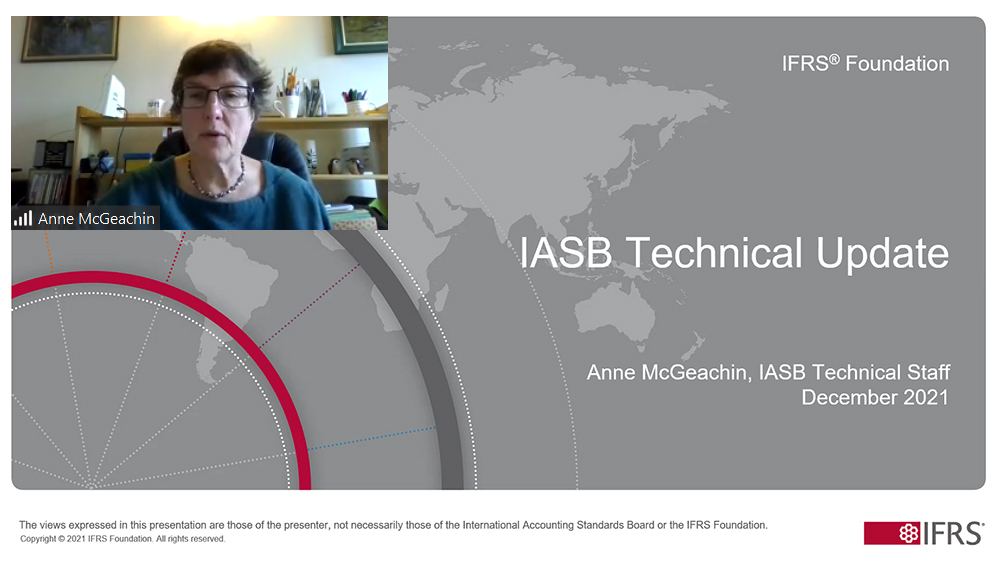A two-day virtual forum for banking and insurance regulators was delivered by the CFRR on December 13 and 14, 2021 under two flagship regional programs: Strengthening Auditing and Reporting in the Eastern Partnership (STAREP) and the Road to Europe Program of Accounting Reform and Strengthening Institutions for Small and Medium Enterprises (REPARIS for SMEs). Representatives of regulators from Kazakhstan and the Kyrgyz Republic also joined the event.
The virtual forum aimed to update banking and financial sector regulators about recent financial reporting and regulatory guidance. The following key areas were discussed:
- Risk-based approach to reviewing and using audited IFRS financial information. The audience was provided with a brief introductory presentation on risk-based financial statement review and then panelists shared their experience and views. In particular, the objective of and process for the Johannesburg Stock Exchange’s proactive IFRS financial information monitoring process was explained as well as how the European Central Bank deal with the complexity of IFRS 9’s financial information (e.g., mathematical models) and differences from prudential filing.
- IFRS and IFRS for SMEs Update. Technical staff from the IFRS Foundation provided the audience with updates on recent new and amended IFRSs and recent materials aiming to improve the consistent application of IFRS, then selected IFRS and the IFRS for SMEs related projects were discussed including the dilemma of creation of new standards to tackle new phenomena versus application of principal based standards Participants also learnt on the International Sustainability Standards Board (ISSB) established by IFRS Foundation’s to deliver a comprehensive disclosure standards on climate and other environmental, social and governance (ESG) matters, that provide investors and other capital market participants with information about companies’ sustainability-related risks and opportunities to help them make informed decisions.
- Topical IFRS theme: financial instruments. The purpose of this session was two-fold: (i) in the context of the Covid pandemic, to revisit judgements and estimates in measuring and reporting expected credit losses in accordance with IFRS 9 Financial Instruments and the related regulatory guidance for prudential regulators; and (ii) to propose to collect views for the IASB’s post implementation review of IFRS 9 Financial Instruments. In particular, the participants learnt about what Bank Negara Malaysia has done in the context of the Covid pandemic and why they have followed such an approach. The representatives of the National Bank of Ukraine shared their experience on IFRS 9 implementation. Banking regulators from participating countries were encouraged to prepare their responses to the IASB’s post implementation review on IFRS 9 with an aim to collate the views of regulators for submission of a single letter. The CFFR team expressed the readiness to support such a process similarly to comprehensive review response on the IFRS for SMEs prepared by STAREP countries.
- Topical IFRS theme: getting ready to regulate IFRS 17 Insurance Contracts. This session discussed preparations for regulating the implementation of IFRS 17 (and the implementation of IFRS 9 by qualifying insurers). Participants benefited from the opportunity to enhance their understanding of the key judgements management must make in implementing IFRS 17 and the disclosures insurers must make in their companies’ 2021 annual financial statements about progress in implementing IFRS 17. In addition, the experience of the Insurance Supervision Agency of North Macedonia and of the National Bank of Ukraine was shared with participants.
Recently published Guide “Informing the reading of IFRS Financial Statements: A guide for banking and financial supervisors” was disseminated as part of this event.
The event was attended by more than 180 participants from 12 countries each day.
Disclaimer: This webpage was created and maintained with the financial support of the European Union. Its contents are the sole responsibility of CFRR and do not necessarily reflect the views of the European Union.













